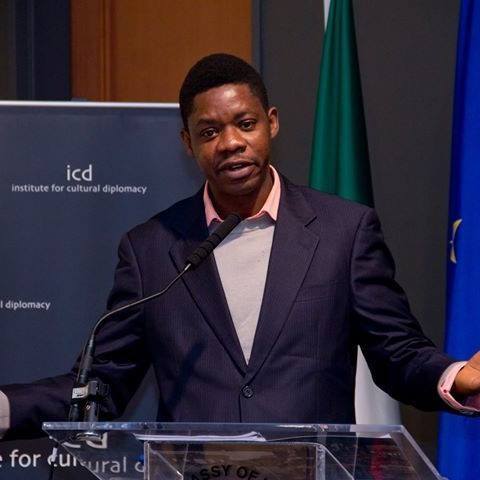

I have argued here that a lot of what we have had to deal with masquerading as either concern or outrage have actually come from a place of ignorance and procedural illiteracy, sophisticated as some of the arguments might have been.
I particularly made this point in an intervention on the architecture of the Presidency and the roles of the Vice President and the Chief of Staff under the system we operate. Of course, that did not stop those who had taken on the role of Attorneys in an absurd pretence at love for Òsó more than Ìyá Òsó to continue to cry wolf out of mischief or ignorance.
For you to properly situate the role of the Chief of Staff, you must understand the nature of the Executive Presidency we have, patterned to a large extent after the American model. You will also need to look at the American system in operation, given that some of the offices and practices are patterned after what operates there.
Indeed, there is only one Presidency. The configuration of the Presidency is as laid out in the Constitution. Everyone, including the Vice President largely serve at the pleasure of the President, safe for a few roles assigned by the Constitution to the office of the Vice President. That, in itself, is a novelty, in comparison with most Presidential Constitutions. It is for this reason that Vice Presidents are hardly visible. As the Presidency is largely a reflection of the President, a hands-on or overbearing President is unlikely to be comfortable with an active Vice. But our focus here is not on the office of the Vice President but that of the Chief of Staff.
The Chief of Staff is an American creation. That role is said to have been created in 1946 but acquired its current title in 1961, with the current official title being ” Assistant to the President and Chief of Staff.” The office was created “in response to the rapid growth of the U.S. government’s executive branch” for managerial and advisory duties with the following responsibilities:
1.Select key White House staff and supervise them;
2. Structure the White House staff system;
3. Control the flow of people into the Oval Office;
4. Manage the flow of information;
5. Protect the interests of the president;
6. Negotiate with Congress, other members of the executive branch, and extra-governmental political groups to implement the president’s agenda; and
7. Advise the president on various issues, including telling the president what they do not want to hear
It should not be difficult to see that the office of Chief of Staff is the heart of the Presidency. It sits squarely at the centre of everything, written or unwritten. Everything comes through it, everything goes out through it, as it is the clearing house. It would therefore amount to procedural illiteracy to argue, as it has been done, that an occupant of that office was into grabbing power unto himself. The office, as designed is inherently powerful and highly influential. The Chief of Staff is the enforcer and a no-nonsense mien and high level of discipline and integrity are top requirements for anyone who seeks to occupy the office.
Of course, as we have stated, the Presidency takes after the President in style and methodology. The Buhari Presidency, for instance, comes across as more comfortable with process routine and delegated authority.than the adhocism and laissez faire approach of the most previous era. People, once settled into the routine of anyhowism often resist order.
It is not strange that for many so used to either the jackbootism of the first man and the chaotic all-over-the-place style of the last man, in both instances, politics propelling policy, a bit of order where politicians take a bit of backseat in the interface with the policy process at the highest level or where Officials have to abide by process than whimsicality in the conduct of government business, is soon considered abnormal.
Take the Trump Presidency, with anyhowism being the order of the day, a retired Marine General in the person of General John Kelly was brought in with the mind to rein in everyone and hopefully the ‘Oga at the top’ himself. His mission was to bring about a bit of order. He might have not succeeded with the Oga who is on the 4th Chief of Staff in less than 4 years but the White House Staff could tell the difference. He was not invisible too, as some assume the role occupant must necessarily be.
There are always multiple centres of influence in the theatre of governance, especially in the Presidency. That the Chief of Staff office who serves as clearing house for the President, effectively in charge of what goes in and out of the President’s office, would be one should not be something difficult to understand. Of course, that makes the COS an influential figure, and one around which many myths are easily woven.
The office of the Chief of Staff was introduced to Nigeria by Governor Tinubu in 1999, perhaps borrowing from his American experience. Lai Mohammed was the first occupant of that office and I remember that even before assumption of office by the administration, there were already murmur and whispers by some who felt that office was rather overbearing.
The qualities a Chief of Staff needs for that office are not necessarily those that promote the popularity of the holder of that office. Not many occupants of the office have been popular during their terms. I doubt that either Lai Mohamed or Babatunde Fashola were the most popular while occupying the office.
Many do not really understand the role of the office and often complain about the occupant. Of course, different occupants with different personalities and managerial styles. But the point is that the office is a major artery and centre of influence. Again, many often confuse power and influence, mistaking one for the other. Influence can make one powerful and with power comes influence.
Some will even argue that the office is not recognised in the Constitution and that the occupant is not an elected official. How can that be a point of contention? It is naive to assume that one has to be elected to be powerful or influential. All over the world, some of the most influential people in government are not elected. Many, not even known. It is naive to assume that a COS will not wield tremendous influence in an executive Presidency as configured by the Constitution.
The Chief Of Staff is a position of major influence. There must be a reason why Chiefs of Staff have moved on to become Governors in some states, with more waiting in the wing. An understanding of the job description of the Chief of staff and the complexities of the game of power should make it easy to see that a lot of the arguments that have been made are redundant and the hot air built around assumptions and allusions founded around procedural illiteracy.
It was General Kelly as Chief of Staff to President Trump, after firing one of Trump’s Advisers, who famously said “the staff and everyone on the staff works for me and not the president.”
Simbo Olorunfemi is a Nigerian poet, journalist, and business person with a background in TV production and brand management.














